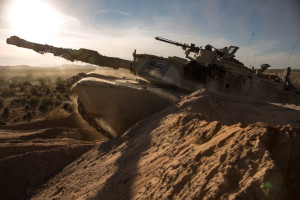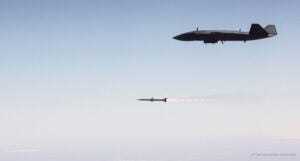Lockheed Martin [LMT] and Kaman Aerospace [KAMN] have successfully demonstrated the capability of an unmanned version of the K-MAX intermeshing-rotor helicopter to resupply Marines at forward operating bases in Afghanistan, the companies said recently. During a series of flights earlier this month in subfreezing temperatures at the U.S. Army's Dugway Proving Ground, Utah, the unmanned K-MAX demonstrated autonomous and remote control flight over both line-of-sight and satellite-based beyond line-of-sight data link. "We met or exceeded the requirements during the demonstration,"…
Contract Updates
SNC Manufacturing LLC (Orocovis, Puerto Rico) – $15,857,625
SNC Manufacturing LLC,* Orocovis, Puerto Rico, has been awarded a maximum $15,857,625 firm-fixed-price, indefinite-delivery/indefinite-quantity contract for mechanics cold weather coveralls. This was a competitive acquisition with five responses received. This is a five-year contract with no option periods. The ordering…
Huntington Ingalls Inc. (Newport News, Virginia) – $9,434,758
Huntington Ingalls Inc., Newport News, Virginia, was awarded a $9,434,758 cost-plus-fixed-fee modification to a previously awarded contract (N00024-22-C-2105) to exercise options for planning and design yard activities for standard navy valves installed in commissioned nuclear-powered submarines, submersibles, and aircraft carriers.…
JRC Integrated Systems LLC (Washington, D.C.) – $10,708,589
JRC Integrated Systems LLC, Washington, D.C., is being awarded a $10,708,589 cost-plus-fixed-fee term contract (including option years) (N0003026C3031) for Trident II D5 Strategic Weapon System programs and Dreadnought programs. Tasks to be performed include operator and operational knowledge and expertise…
Lockheed Martin Corp. Missiles and Fire Control (Archbald, Pennsylvania) – $23,097,963
Lockheed Martin Corp., Missiles and Fire Control, Archbald, Pennsylvania, is awarded a $23,097,963 modification (P00007) to a previously awarded firm-fixed-price contract (N0001924C0004). This modification adds scope for the production and delivery of 4,002 Laser Guided Training Rounds Bomb Dummy Unit…










